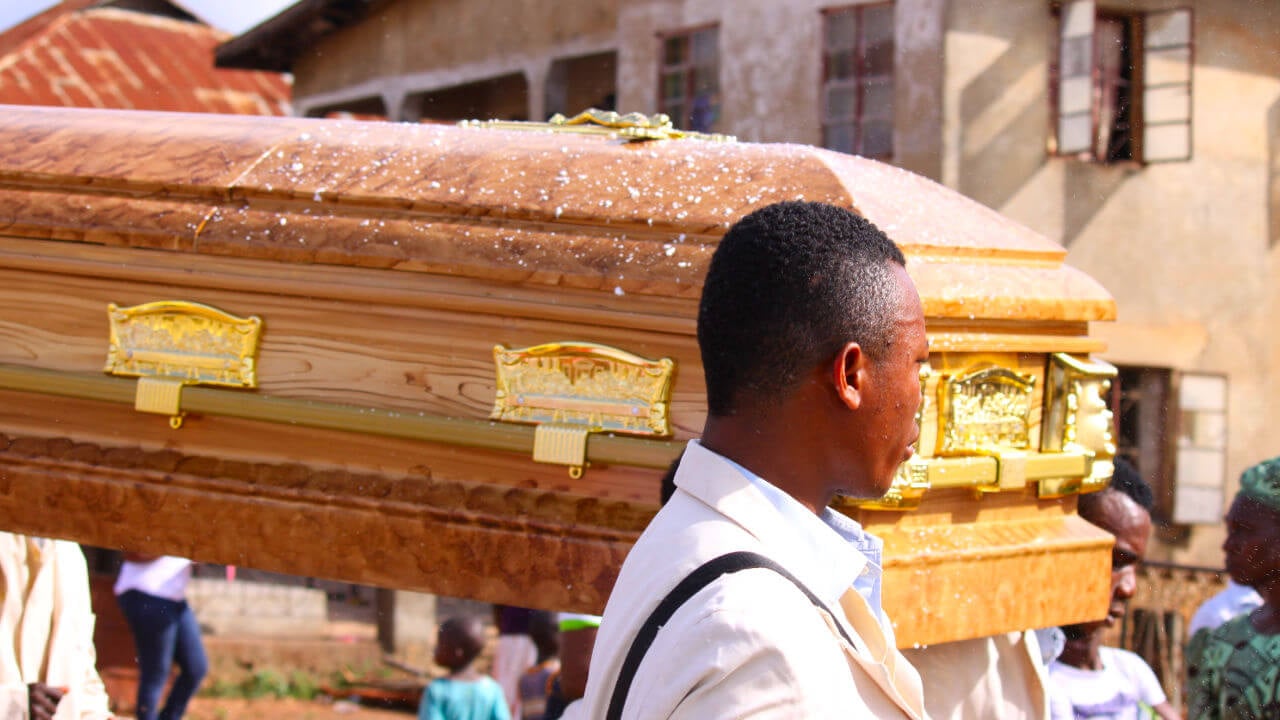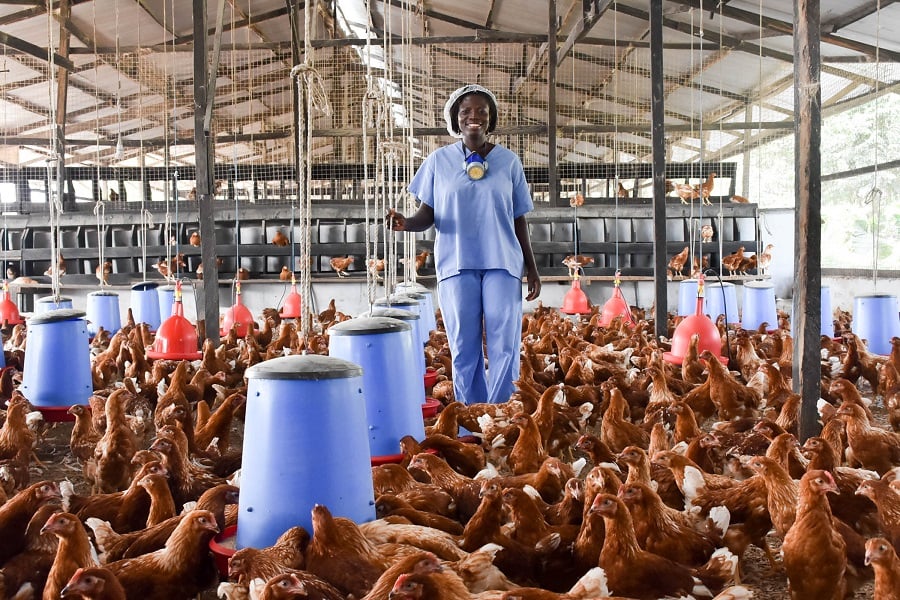BY LEO IGWE
A recent Facebook post by a Danish woman, Anja Ringgren Loven, was a brutal reminder of the debauched mourning traditions in some parts of Nigeria. In the post, Anja noted how she and her team saw a “lot of children living alone in a house with the corpse of their mother”. According to her, it is common for many families in Akwa Ibom to keep the corpses of their relatives in a room because “they don’t have money to pay for a funeral”.
This is deeply embarrassing. She further pointed out the troubling trend of abandonment of loved ones whose bodies remain in morgues, “driven by rising costs and societal expectations surrounding extravagant funerals”. Yes, extravagant funerals. I mean, why should funerals be wasteful? Why should bereaved families go through or be made to suffer this additional pain and loss?
Anja’s observation is apt and applies not only to communities in Akwa Ibom but also to other places in south-south and south-eastern Nigeria. When someone dies, people are twice as bereaved. They grieve not only because of the person who passed but also because of the cost of the funeral. This is shameful and needs to be addressed. I am from Imo state and moved to the south-west in 1994.
Advertisement
For over two decades, I had limited contact with relatives and seldom participated in their traditional rites and ceremonies. I heard people complain about the costs of funerals but I thought it was all self-inflicted and something that one could easily avoid or do away with. But it was in 2021 when my father passed away that I realised how profligate these funeral traditions are and could be. I came face to face with the lunacy and viciousness of self-styled custodians of ‘traditions’. It has been difficult to get over the pain and disappointment over the decadent funeral culture in my community.
When people pass away, relatives should grieve but they cannot, because they are not allowed to. The bereaved are unable to mourn because of what Anja noted in her post as “costs of funerals and societal expectations”. In many cases, funeral traditions push families into debt. The funerals are more traumatising than the death of relatives. If there is something a grieving person or family needs, it is not to be subjected to a gruelling funeral tradition, to extortion at every turn in the name of omenala (tradition). In my case, after the death of my father, relatives whom I never knew or could barely recognise started emerging from nowhere. They started calling and dictating various funeral traditions to be observed and fulfilled.
For them, these traditions were sacrosanct and must be upheld. My father was sick and bedridden for years. Many of these relatives never cared. Some despised him. But as soon as he passed, they started making various demands, wanting and pressuring the family to do the omenala (tradition). If one takes a critical look at what they identify as the omenala, it is all their fabrication; things that they made up and called traditions. At some point, I wondered if my father died and was buried soon after in Ibadan or at his village, without these stupid and encumbering traditions, what would have happened? Would heaven have fallen? Of course not.
Advertisement
Soon after the death was announced, relatives from different sides of the family started sending me lists of things to do and buy including goats, chicken, cartons of beer, tubers of yam, coolers of rice, fufu, and assorted soup, etc. I noticed that funeral traditions were only devices to extort money from the bereaved. Funeral traditions were not really about mourning and grieving. The funeral was about eating, drinking, and merry-making at the expense of people who are grieving. I found this way of ‘mourning the dead’ disgusting and outrageous.
Let me cite two instances that revealed the wretched and bankrupt nature of funeral traditions during my late father’s burial. When my father passed we needed to inform his maternal relatives. I informed them by phone that my father had died. I did this because I was not living in Imo state. But they said that it was not the ‘tradition’, and that I needed to come physically to inform them. Think about it. Is that not stupid?
This tradition started before cell phones were invented; when people travelled on foot to inform relatives about deaths and births in families. Why can’t we change this ‘tradition’ so that people can phone to inform relatives about the death of a family member? By the way, these same relatives accept monies electronically transferred into their accounts. They do not invoke tradition to reject such transactions.
I later travelled to my father’s maternal home to inform them about his passing. They told me that I should advance some funds; they gave me a long list of what to buy and bring along the day I would come to ‘properly’ inform them that my father had died. Imagine that. I was deeply embarrassed. These relatives conducted themselves with straight faces. Some said they were lenient and did not bill my family enough.
Advertisement
Fast forward to the funeral day, my father’s maternal relatives arrived and demanded a cow because they saw some cows in the compound. There was no cow in the list that they gave us. I told them that a cow would not be given to them because there was no cow on the list that they gave and they angrily left. I ignored them. Two days after the funeral, they messaged that my family should go ahead and fulfil the tradition as contained in the original list. And we reluctantly did.
In the end, after subjecting us to all the stress, I curiously asked them what they had for the family. One of them said, prayers and blessings. I said What! Prayer and blessing? From who? For what? I could not get my mind around this utterly pointless and senseless response. I thought they were joking. Later in the day, two ‘elders’ came and again asked for ‘hot drinks’. They said they wanted to pray for the family. I declined to participate in the prayer. My immediate younger brother accepted and they prayed and left. I could not believe that all that they had for the family in return was “prayer”. Look the funeral tradition is not a scam. It is an extortion device. When I came home to prepare for the funeral, a relative told me that people were expecting a lot from my family. I deemed that a senseless remark because I could not fathom how those people came about their high expectations. And why we were obliged to fulfil them.
Indeed social expectation and pressure drive mourners into debt and bankruptcy. Many people borrow money or sell family property such as land to bury a family member. Just imagine that. There have been instances where people in the community lend money or buy some property of bereaved families at giveaway prices. Now the bereaved families spend the money fulfilling funeral traditions in the same community. I mean, people are so callous and insensitive.
Having said that I also noticed that some family members contribute to this problem because some use funerals to further some selfish goals and interests. Some family members see funerals as a business, as a way to raise money. Some people use funerals as opportunities to show off their wealth, status, and success, to let the world know that they have arrived. In my case, my father’s funeral was an opportunity for one of my siblings to advertise and launch his political ambitions, and invite and feast his political friends and allies.
Advertisement
For him, our late father’s funeral was a strategic opportunity to make a political statement. In addition, the funeral provided a platform to compete and know who would outspend others. So at the funeral, beneath the plastic smiles were microaggression, tension, vendetta, rivalry, and intraspecific squabbles. Whilst publicly the funeral was framed as honouring the dead, giving a befitting burial to the relative and protecting some family pride. And all the unnecessary, ‘extravagant’, and uncalled-for expenses were presented as efforts to ensure the family was not disgraced!
We need to change this wretched funeral culture and tradition. It is disgraceful and destructive. This funeral orientation hurts and harms people. We need to end a practice that continues to impoverish those who mourn. Funerals should be conducted in ways that allow people to grieve and come to terms with the loss of their loved ones. They should not be opportunities to rob shoulders, oppress, extort or exploit others. Funerals should not be an avenue to display wealth and affluence. Funerals should be what funerals are supposed to be: ceremonies to honour and bury the dead. So a funeral should be a private affair and should take place at little or no cost to the relatives of the dead. There should be no need for families to sleep with corpses of relatives at home or abandon them in morgues for weeks, months, and years due to the costs of funerals and social expectations.
Advertisement
This cultural show of shame must stop. Let us end this costly and extravagant funeral tradition now!
Leo Igwe is a humanist who lives in Ibadan. He can be contacted via [email protected]
Advertisement
Views expressed by contributors are strictly personal and not of TheCable.
Add a comment










